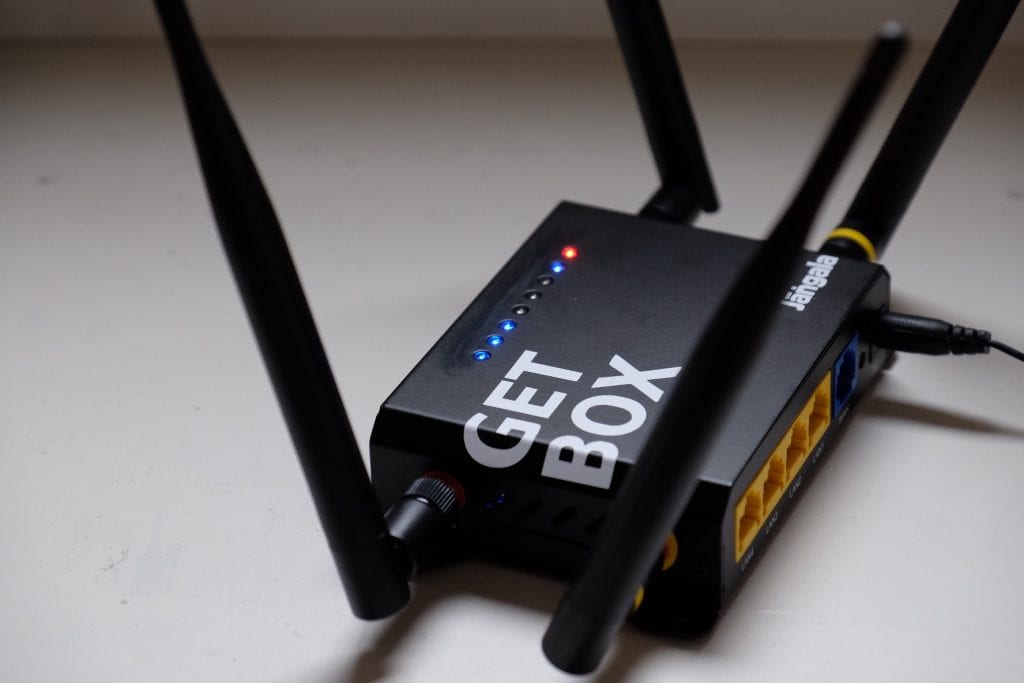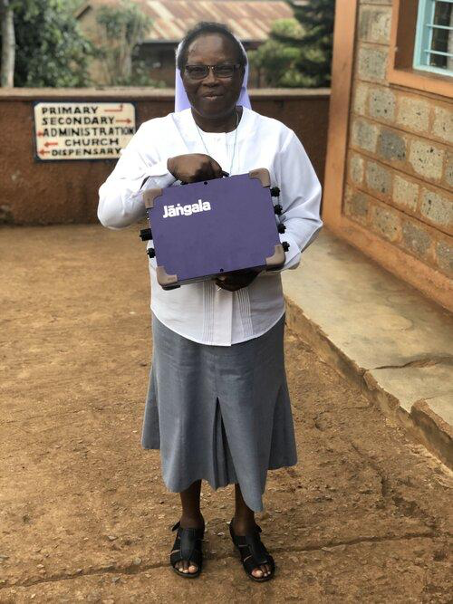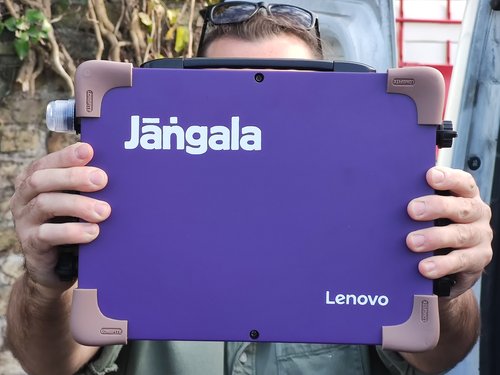Q&A with the Winners: Team Jangala
In this Q&A, Team Jangala talks about their team’s solution — Power to Power Connectivity — which won the 2nd Place, Technology Applications Proof of Concept prize in the 2022 Connecting the Unconnected Challenge.
1.Please summarize your winning solution

Big Box by Jangala is a portable, lightweight, and rugged briefcase-sized device that transforms any form of internet connectivity into Wi-Fi that is easy to manage and scale. It is equally at home serving a small, mobile field team using satellite backhaul or serving as a central hub for a refugee camp of 1000s of people. It has been deployed in Turkey by search and rescue teams following the earthquakes and in schools and community projects worldwide.
Big Box has been designed to bypass common blockers to the provision of connectivity, including insufficient (or complete lack of) infrastructure, affordability, and lack of digital literacy. By eliminating the need for costly technical expertise for installation, configuration and maintenance, Big Box substantially lowers the barriers to deploying internet access across a range of challenging scenarios.
The system only needs limited backhaul to create a reliable connection thanks to its traffic shaping abilities, bandwidth control, and twin 4G/5G modems; allowing it to make the most efficient use of the connection available, saving costs for network owners. Up to 32 sources of backhaul – from Starlink to point-to-point wireless – can be combined into a single, stable connection, making it suitable for use in areas with unreliable cellular coverage. It has the computing power to be able to shape and route 1Gbps+ of internet traffic to 3000+ concurrent users.
Big Box is supported by our cloud IOT platform, providing connection metrics, and enabling monitoring and support to tens of thousands of devices deployed globally.
2.What is the most unique/innovative aspect about your approach?

Our biggest USP is that we offer internet connectivity in challenging environments to marginalized and underserved communities that it is not of a lesser standard or inferior internet access. We are a humanitarian technology charity that designs and develops products that compare favorably to those of commercial organizations.
Big Box is designed to be user-friendly for people without digital literacy or technical expertise. So, the system does not require engineers for set up or maintenance and remote technical support, troubleshooting, and updates are provided remotely.
With lower quality access points, hotspots and routers are designed for use in small-scale commercial or domestic settings and are unable to handle high volumes of users that many field settings require. Big Box presents a reliable alternative to these products and is suitable for use in both small and large-scale demand contexts, thanks to its ability to utilize multiple cellular inputs and produce a single stable Wi-Fi connection.
Where data costs are an ongoing concern for partners, Big Box’s traffic shaping and bandwidth control capabilities allow it to make the most of the available bandwidth to produce a highly efficient connection, thereby reducing costs for network users.
Furthermore, unlike other solutions that are large or designed for use in specific settings, Big Box is backpack-sized and lightweight (2kg), making it easily transportable and its rugged construction allows its use in dusty, wet, and unstable environments.
3. What did you enjoy most about the CTU Competition and Summit Program?
The CTU Competition and Summit Program has been a fantastic experience for Jangala. We have learned so much from seeing what our peers are working on and the networking opportunities. Good things have already come from our participation and we are certain that the connections we have made here will also prove fruitful in the future.
4.What are your projects plans for the next 12-18 months?
Globally 2.9billion people have never used the internet; 2.8m schools are not connected; 100 million people are displaced. Jangala’s mission is to collectively connect every school, clinic, and community resilience project to the internet. Our beneficiaries typically belong to underserved and marginalized communities, such as those in low-income communities, asylum seekers and refugees, residents of homeless shelters and informal settlements and those affected by natural disasters or conflict.

We have connected thousands of people; our mission is to connect millions. Jangala has been prototyping Big Box and field testing, now we are getting ready to scale. We will have a manufacture-ready V1 Big Box in the next 12-18 months. This will be a game changer for Jangala, a game changer for INGOs and a game changer for education, healthcare, and humanitarian disaster relief globally.
5.What is your estimate of the number of people impacted by your program?
To date we have connected 63,000 people through our partners across five continents. We currently have live projects in 23 countries worldwide.
Some of our projects include schools in the DRC, Nigeria, Fiji, and Uganda; refugee camps and support services in Kenya, France, and South Africa; and healthcare services in Tanzania and Nepal. Our beneficiaries include the people using these services as well as the staff delivering and coordinating them.
6. Anything else you would like to share
We would like to thank the IEEE Committee for this opportunity. We know that the Committee has committed a lot of time and effort to the IEEE Connecting the Unconnected Challenge. The recognition that these peer-reviewed awards give us is invaluable, contributing to Jangala’s ability to develop and grow and therefore to connect significantly more people to the internet globally.


